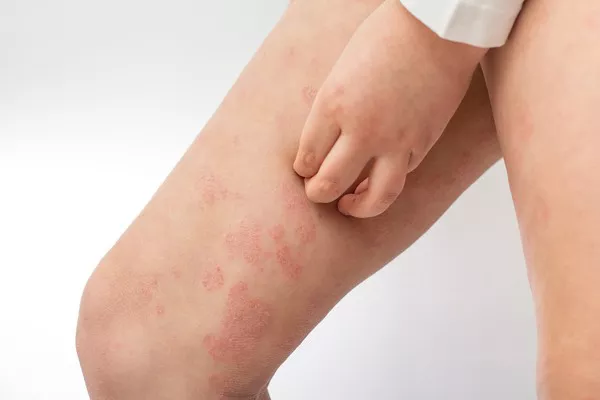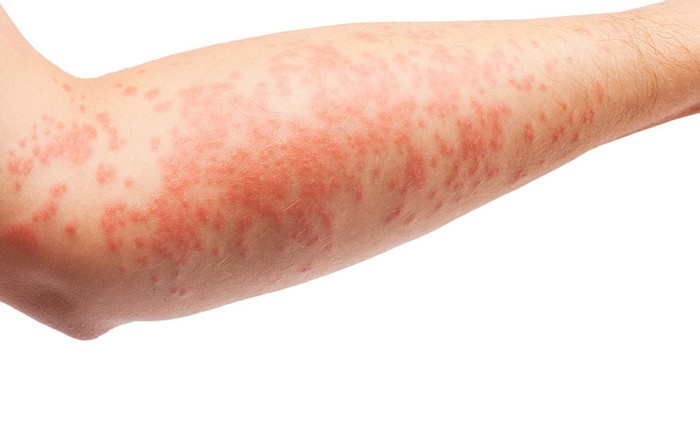Eczema, also known as atopic dermatitis, is a chronic skin condition characterized by inflamed, itchy, and red patches of skin. While topical treatments can provide relief, addressing the root causes internally can lead to more sustainable improvements. This article explores the internal factors contributing to eczema and presents a holistic approach to managing and potentially curing it from the inside out.
Understanding Eczema: The Internal Perspective
Eczema is often seen as a surface-level issue, but its roots extend deep into the body. Several internal factors contribute to the development and persistence of eczema, including immune system dysfunction, gut health, allergies, and stress. Understanding these connections is crucial for effective management.
The Role of the Immune System
Immune System Dysfunction and Eczema
The immune system plays a central role in eczema. In individuals with eczema, the immune system overreacts to harmless substances, leading to inflammation and the characteristic symptoms of the condition. This hyperactive immune response can be triggered by a variety of factors, including allergens, stress, and infections.
Balancing the Immune System
To manage eczema internally, it is essential to balance the immune system. This can be achieved through dietary changes, supplements, and lifestyle modifications. Anti-inflammatory foods, such as leafy greens, fatty fish, and nuts, can help reduce inflammation. Additionally, supplements like omega-3 fatty acids, vitamin D, and probiotics can support immune health.
Gut Health and Eczema
The Gut-Skin Connection
The gut and skin are closely connected, and gut health can significantly impact eczema. Dysbiosis, an imbalance in gut bacteria, can lead to increased intestinal permeability, also known as “leaky gut.” This condition allows toxins and allergens to enter the bloodstream, triggering immune responses that manifest as eczema.
Restoring Gut Health
Improving gut health is a critical step in managing eczema internally. A diet rich in fiber, fermented foods, and prebiotics can promote a healthy gut microbiome. Additionally, avoiding processed foods, sugar, and artificial additives can reduce inflammation and support gut healing. Probiotics and digestive enzymes can also aid in restoring gut balance.
Allergies and Eczema
Identifying Triggers
Allergies are a common trigger for eczema. Identifying and avoiding allergens can help reduce flare-ups. Common allergens include certain foods (such as dairy, gluten, and nuts), environmental factors (such as pollen, dust mites, and pet dander), and chemical irritants (such as soaps, detergents, and cosmetics).
Elimination Diets
An elimination diet can help identify food allergies and sensitivities. This involves removing potential allergens from the diet for a period of time and then gradually reintroducing them to observe any reactions. Consulting with a healthcare professional or a nutritionist can ensure this process is done safely and effectively.
The Impact of Stress on Eczema
Stress and Immune Response
Stress is a significant factor in eczema flare-ups. It can weaken the immune system and increase inflammation, exacerbating eczema symptoms. Managing stress is therefore a crucial component of an internal eczema treatment plan.
Stress Management Techniques
Incorporating stress management techniques into daily life can help reduce eczema symptoms. Practices such as mindfulness meditation, yoga, deep breathing exercises, and regular physical activity can lower stress levels. Ensuring adequate sleep and maintaining a healthy work-life balance are also essential for stress reduction.
Nutritional Support for Eczema
Anti-Inflammatory Diet
An anti-inflammatory diet can help manage eczema by reducing overall inflammation in the body. Key components of an anti-inflammatory diet include:
- Fruits and Vegetables: Rich in antioxidants, vitamins, and minerals, fruits and vegetables can help reduce inflammation and support skin health. Berries, leafy greens, and colorful vegetables are particularly beneficial.
- Healthy Fats: Omega-3 fatty acids, found in fatty fish (such as salmon and mackerel), flaxseeds, and chia seeds, have potent anti-inflammatory properties.
- Whole Grains: Whole grains, such as quinoa, brown rice, and oats, provide fiber and nutrients that support gut health.
- Lean Proteins: Lean proteins, such as poultry, tofu, and legumes, are essential for overall health and can help repair and maintain skin tissue.
SEE ALSO: How to Treat Eczema on Back of Neck
Avoiding Inflammatory Foods
Certain foods can exacerbate inflammation and worsen eczema symptoms. It is advisable to avoid:
- Processed Foods: High in additives, preservatives, and unhealthy fats, processed foods can increase inflammation.
- Sugar: Excessive sugar intake can lead to increased inflammation and disrupt gut health.
- Dairy and Gluten: Some individuals with eczema may be sensitive to dairy and gluten. Eliminating these from the diet can help reduce symptoms.
Supplements for Eczema
Essential Nutrients
Several supplements can support internal eczema management by addressing nutritional deficiencies and reducing inflammation:
- Omega-3 Fatty Acids: As mentioned earlier, omega-3s have anti-inflammatory properties and can be obtained through supplements like fish oil or flaxseed oil.
- Probiotics: These beneficial bacteria support gut health and can help reduce inflammation and allergic responses.
- Vitamin D: This vitamin supports immune function and skin health. Supplementation may be necessary, especially in individuals with low sun exposure.
- Zinc: Zinc plays a role in immune function and skin healing. A zinc supplement can help address deficiencies that may contribute to eczema.
Herbal Remedies
Herbal remedies can also support internal eczema management:
- Turmeric: Known for its anti-inflammatory properties, turmeric can be taken as a supplement or added to food.
- Aloe Vera: While commonly used topically, aloe vera can also be consumed as a supplement to reduce inflammation.
- Evening Primrose Oil: Rich in gamma-linolenic acid (GLA), evening primrose oil can help reduce eczema symptoms when taken as a supplement.
Detoxification and Eczema
Supporting Detoxification
Detoxification processes in the liver and kidneys help eliminate toxins from the body. Supporting these processes can reduce the burden on the skin and help manage eczema.
Detoxifying Foods and Practices
Incorporating detoxifying foods and practices can support the body’s natural detoxification processes:
- Hydration: Drinking plenty of water helps flush out toxins and supports overall health.
- Cruciferous Vegetables: Vegetables like broccoli, cauliflower, and Brussels sprouts support liver detoxification.
- Herbal Teas: Teas made from dandelion root, burdock root, and milk thistle can support liver health.
- Regular Exercise: Physical activity promotes sweating, which helps eliminate toxins through the skin.
The Importance of Hydration
Hydration and Skin Health
Staying hydrated is essential for maintaining healthy skin. Dehydration can lead to dry, flaky skin and exacerbate eczema symptoms. Drinking adequate amounts of water daily supports overall skin health and hydration.
Hydration Tips
- Water Intake: Aim for at least eight glasses of water per day, more if you are active or live in a hot climate.
- Herbal Teas: Herbal teas can contribute to your daily water intake and provide additional health benefits.
- Fruits and Vegetables: Consuming water-rich fruits and vegetables, such as cucumbers, watermelon, and oranges, can help maintain hydration.
Personalized Approach and Professional Guidance
Individualized Treatment Plans
Eczema varies greatly among individuals, and what works for one person may not work for another. A personalized approach, considering individual triggers, allergies, and overall health, is essential for effective management.
Consulting Healthcare Professionals
Working with healthcare professionals, such as dermatologists, nutritionists, and naturopaths, can provide valuable insights and guidance. They can help identify underlying issues, recommend appropriate tests, and develop a tailored treatment plan.
Conclusion:
Curing eczema internally requires a comprehensive and individualized approach. By addressing immune system balance, gut health, allergies, stress, and nutrition, it is possible to manage and potentially cure eczema from the inside out. Incorporating dietary changes, supplements, and lifestyle modifications can lead to sustainable improvements and a better quality of life. Remember to consult with healthcare professionals to ensure a safe and effective treatment plan tailored to your unique needs.
By taking a proactive and holistic approach, you can empower yourself to manage eczema more effectively and achieve healthier skin from within.
Related Topics:






















